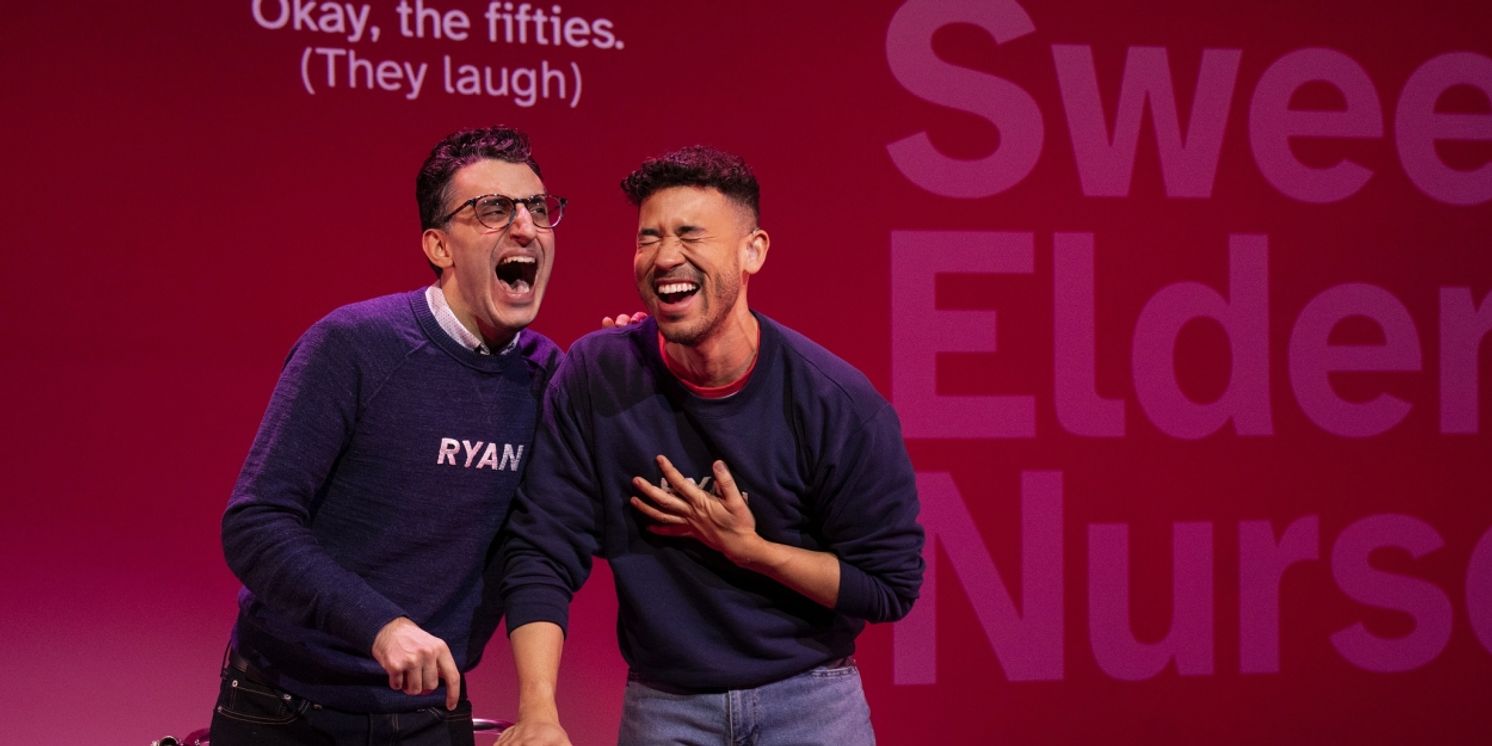Review Roundup: DARK DISABLED STORIES Opens at the Public Theater
Dark Disabled Stories runs through March 26, 2023 at The Public's Shiva Theater.

Ryan J. Haddad's Dark Disabled Stories, the new co-production between The Bushwick Starr and The Public, officially opened at The Public's Shiva Theater last night, March 9.
Acclaimed writer and performer Ryan J. Haddad makes his Off-Broadway playwriting debut with the hilarious and audacious Dark Disabled Stories. Haddad's newest autobiographical play is a series of unforgiving vignettes about the strangers he encounters while navigating a city (and a world) not built for his walker and cerebral palsy. Directed by Jordan Fein, Dark Disabled Stories probes implicit ableism and the assumptions we make about people we'll never really know.
The cast of Dark Disabled Stories includes Ryan J. Haddad, Dickie Hearts, and Alejandra Ospina.
Let's see what the critics had to say...
Laura Collins-Hughes, New York Times: Presented by the Public and the Bushwick Starr, "Dark Disabled Stories" is a highly theatrical, gracefully layered model of inventive inclusivity. Haddad and Hearts, a Deaf actor who radiates charisma, play parallel versions of a character called Ryan. Haddad speaks the lines; Hearts signs them. (The director of artistic sign language is Andrew Morrill.) The written dialogue is projected, attractively, on the upstage wall.
Melisssa Rose Bernardo, Time Out: Haddad has cerebral palsy, which he admits to often mining for laughs. "I try to make disability funny so that non-disabled people can understand it," he says. Dark Disabled Stories digs into accessibility, ableism and inclusion, yet it's still shamelessly funny. ("I'm a naturally comedic person," Haddad says, accurately.) A few years ago, you might have seen his solo show Hi, Are You Single? Here, he has two costars to make the production as accessible as possible for disabled audience members. Deaf actor Dickie Hearts communicates in ASL alongside Haddad, and the duo's comic timing is flawless; Alejandra Ospina sits just offstage and describes all the visuals-from the set design to the actors' movements-for blind and low-vision theatergoers.
Thom Geier, The Wrap: ultimately, "Dark Disabled Stories" is a show about forging connections, including intimate ones, and building empathy for those who experience the world differently and meeting them on their own terms. And Haddad strikes a tone that challenges the audience without ever rising to anger or bitterness. His mission is building awareness, not guilt, and reminding us that even those with 20/20 vision have their blind spots.
Ryan Leeds, Queerty: In recent years, theater companies have touted a mission of inclusivity. Much of it looks great on paper but falls short of execution. Directors Fein and Morrill, Haddad, his cast, and the production teams at The Public Theater and The Bushwick Starr deserve high praise for creating a compelling theater piece that genuinely and successfully integrates access for all. While much can and will be written about Dark Disabled Stories, it is instead a piece that should-and must - be experienced in person.
Wendy Caster, Talkin' Broadway: In this world premiere production, Dark Disabled Stories centers around the stories of Ryan, described in the script as "Late twenties. Gay man with cerebral palsy." Ryan is played by disabled actor Ryan J. Haddad and by Deaf actor Dickie Hearts, who points out a couple of times that he is an actor, not an interpreter-and a damn good one, as it happens. While Haddad leans toward stand-up-type acting, Hearts provides a full performance-subtle, warm, funny and charming, particularly during the section of the play that features his story rather than Ryan's.
Allison Considine, New York Theatre Guide: Are non-disabled people willing to make an effort? That's a main throughline, one Haddad drives home through vulnerability and pointed takeaways. Haddad's previous solo shows Hi, Are You Single? and Falling For Make Believe balanced humor with education about the disabled experience. Dark Disabled Stories goes a step further, interrogating the audience: What are you doing to make the world more inclusive?
Loren Noveck, Exeunt: For me, the piece approaches that evolution in the moments where it flips the script-where it allows Alejandra and Dickie to participate as storytellers in addition to aspects of Ryan; when Ryan's voice is put in the service of voicing Dickie's narrative as well as the other way around. Dickie's story, of a Scruff date with a cop that almost went horribly wrong, is bravura and hilarious; Alejandra's, of getting screwed over by the inability of the MTA to keep its elevators running, is quieter and more intimate. But both add a welcome expansion of the play world, and a welcome specificity that underscores the point that accessibility means something different to everyone, audience and performers alike, and perhaps we need not new paradigms, but an ever-expanding set of tools to customize each show to meet its precise needs.
- To read more reviews, click here!
- Discuss the show on the BroadwayWorld Forum
Reader Reviews
Videos

